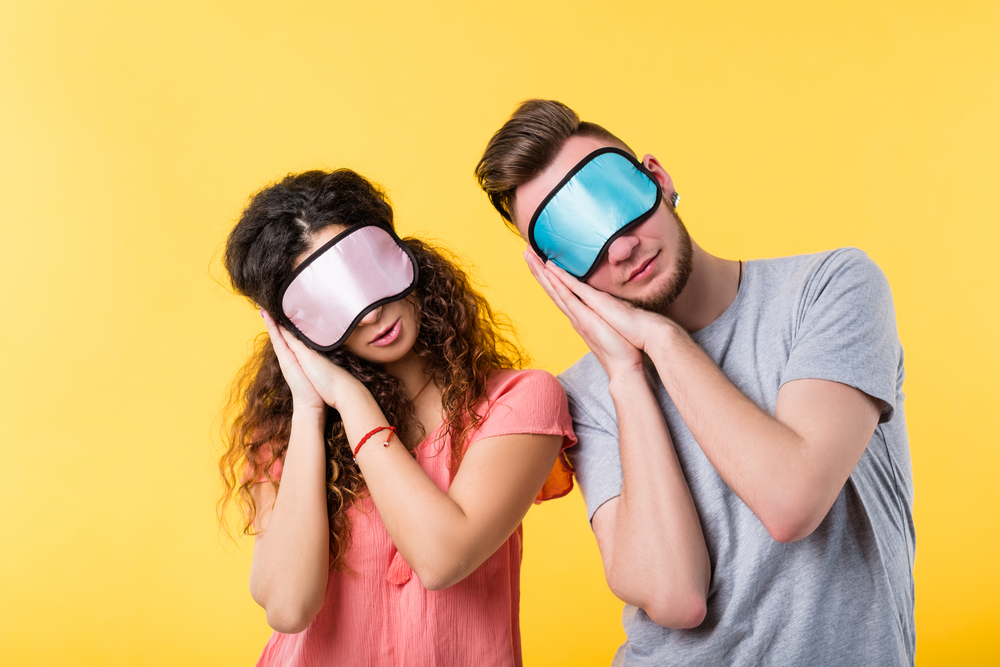What is Sleep Hygiene & How Can You Improve Yours?
Sleep hygiene is the collection of conditions and habits that directly and significantly affect a person’s sleep health. People with poor sleep hygiene have difficulty maintaining regular sleep patterns and often struggle to get enough rest.
The good news is that sleep hygiene is completely within a person’s control and there are plenty of changes that can be made to improve it. Below are the top things that affect sleep hygiene. Read what’s healthy, evaluate and compare your own habits, and get started on making improvements that will get you the rest your body needs.
Sleep Schedule:
Consistency is key when it comes to your sleep schedule. Set one bedtime and wake-up time that will work for you during the week and the weekend. Your body – and therefore your sleep – doesn’t understand the concept of a weekend, so going to bed and waking up at a different time on Saturdays and Sundays will negatively impact your sleep hygiene.
After a few weeks of consistently following a schedule, your body will begin to regulate its internal clock. Not only will this make it easier to fall asleep at night and wake up in the morning, but it will also improve the quality of your sleep throughout the night.
Sleep Environment:
Your environment is crucial to the health of your sleep. No one gets a good rest if their body is uncomfortable. It’s important to invest in a quality bed that has a level of firmness that fits your personal preference of comfort.
Fill the bed with pillows you find comfortable, keeping in mind possible allergens you may have for certain pillow stuffings. Ensure you have adequate blankets to keep you warm but try using layers so you can stay cool on warm nights.
It’s not just your bed that’s important for your sleeping environment. You’ll want to cut out any possible light or noise pollution. Use blackout curtains on your windows to keep city lights, moonlight, or the early rising sun out of your room.
In a pinch, you can also use a sleep mask, though many people get frustrated with these as they easily slip off or get knocked askew. If you have a lot of sound pollution, invest in a good set of earplugs or a white noise machine to help tune out the distracting sounds.
One of the most important things to keep in mind is that your sleep environment is meant for sleep. Try to avoid any activities in your bedroom that aren’t sleeping or intimacy-related. This means no watching TV, working on your laptop, or scrolling on your phone. Keep your bedroom free of distraction and keep your bed linked in your mind to rest and comfort.
Pre-Sleep Habits:
What you do before bedtime is just as important as what you do when it’s time to try falling asleep. Don’t eat any heavy meals or spicy snacks within 3 hours of bedtime, so your body has adequate time to digest them in case there’s any discomfort during the process.
Limit caffeine intake in the evening. An alcoholic beverage with dinner is okay, but anything more or later in the evening will also have a negative impact on your sleep. You’ll also want to limit how much you drink any sort of beverage close to bedtime, as you don’t want your bladder to disrupt your sleep.
People often find success if they create a “wind-down” routine for 30-60 minutes before their allotted bedtime. This allows the body to calm down and let go of the stress of the day. If you do the same designated activity during wind-down, your body will even learn to associate it with sleep and begin getting tired during that activity. Wind-down activities include taking a warm bath, reading a chapter of a non-suspenseful book, meditation, or working on a puzzle.
Try to avoid anything with blue light – TV, computers, tablets, smartphones, e-readers – in the hour leading up to bed. This light can actually interfere with your body’s melatonin production, restricting your ability to regulate your sleep.
Daily Activities:
Studies have shown that regularly exercising can enhance a person’s ability to get a good night’s sleep. This phenomenon occurs for a few reasons. First, exercise helps alleviate stress and anxiety. It gives your mind and body an outlet to work through things, often acting like a form of therapy or a coping mechanism for people.
Exercise also tires your body out. A tired body is going to fall asleep faster and stay asleep better as it needs time to recover. The only limit for exercise is to not do it in your 30-60 minute “wind down” window, as your body needs time to come down from the endorphins that flood the body post-workout.
Cutting out naps is also a huge thing to help improve your sleep. If you’re napping during the day, your body is usually getting just enough rest to make sleep difficult at night, but not enough rest to make up the difference of the sleep you’ll inevitably lose later. Napping also messes with your body’s internal clock.
If you absolutely must nap, don’t do so for more than 30 minutes, and try to aim for early afternoon. This allows your body ample time to reset and drain its energy before bed.
Changing your sleep habits can be difficult, especially if you have a few to tackle. Start small with the tasks that are easiest to fix right away and work on making the bigger changes over time.
If you’ve put in the hard work to improve your sleep hygiene and still find yourself struggling with sleep, it might be time to consider seeking professional help.

